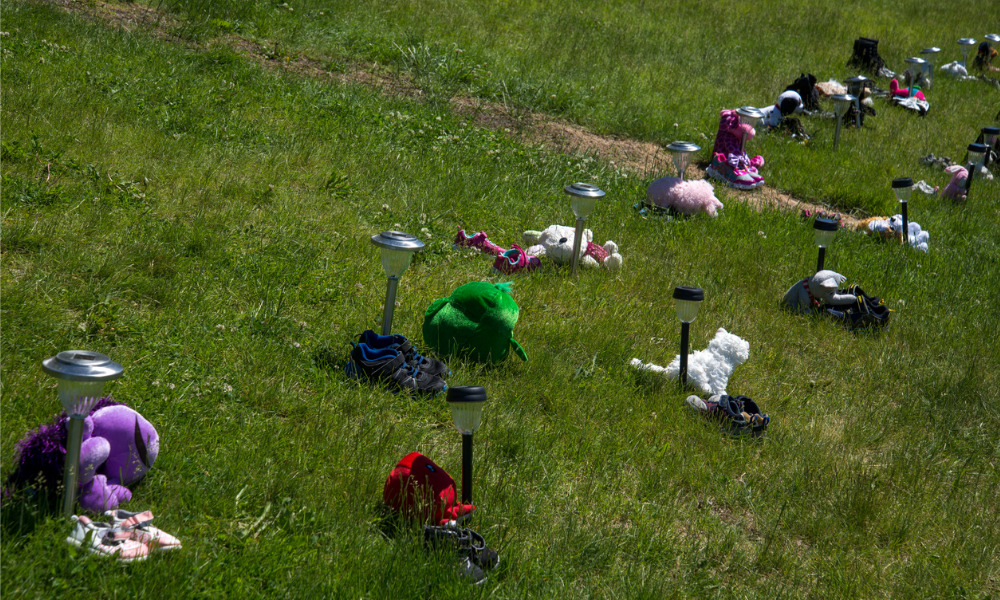
Appointee will make recommendations for relevant federal laws, regulations, practices

The federal government plans to appoint a special interlocutor who will work with Indigenous leaders on its approach to unmarked and undocumented graves and burial sites at Indian residential schools, David Lametti, federal justice minister and attorney general, has announced.
“The identification of unmarked and undocumented graves and burial sites at residential schools has brought to public consciousness the depth of pain and sense of injustice felt by Indigenous peoples in Canada,” said a backgrounder from the Department of Justice Canada.
The special interlocutor, informed by the perspectives and concerns of Indigenous peoples, will conduct a holistic review, then will recommend a new federal framework for stronger laws, regulations, tools and practices applicable to the unmarked graves and burial sites at residential schools.
The new framework aims to respect the dignity of Indigenous children and their communities and to lay down the responsibilities for unmarked burial sites. This work will apply Indigenous legal orders, the United Nations Declaration on the Rights of Indigenous Peoples Act, and international norms and instruments.
The new position also involves building a relationship of trust and facilitating communications between Indigenous peoples and the Canadian government with respect to the unmarked burial sites. The special interlocutor will seek to ensure the use of culturally appropriate engagement processes in establishing a model for further initiatives and to assist in developing recommendations for improving the engagement process on issues of common concern to the government and to Indigenous peoples.
The interlocutor will also arrange the communications with provincial and territorial governments relating to matters arising within their jurisdiction and with relevant institutions such as churches. They will also gather information to ensure that Canada recognizes the needs of Indigenous peoples as it seeks to work toward reconciliation and healing and passes laws protecting unmarked graves and burials sites.
Lametti, in developing the new position, spoke with Canada’s Indigenous leaders, who stressed the need for an Indigenous-led response. The federal government intends to choose a candidate after it has engaged with Indigenous leaders and communities in the coming weeks, during which time the special interlocutor’s mandate may change.
The special interlocutor will also collaborate with the National Advisory Committee to be launched by Crown-Indigenous Relations and Northern Affairs Canada, said a news release. The new committee, which will be composed of Indigenous knowledge holders and experts in archaeology, forensics, pathology, mental health and other areas, will advise communities and the federal government on efforts to locate burial sites.